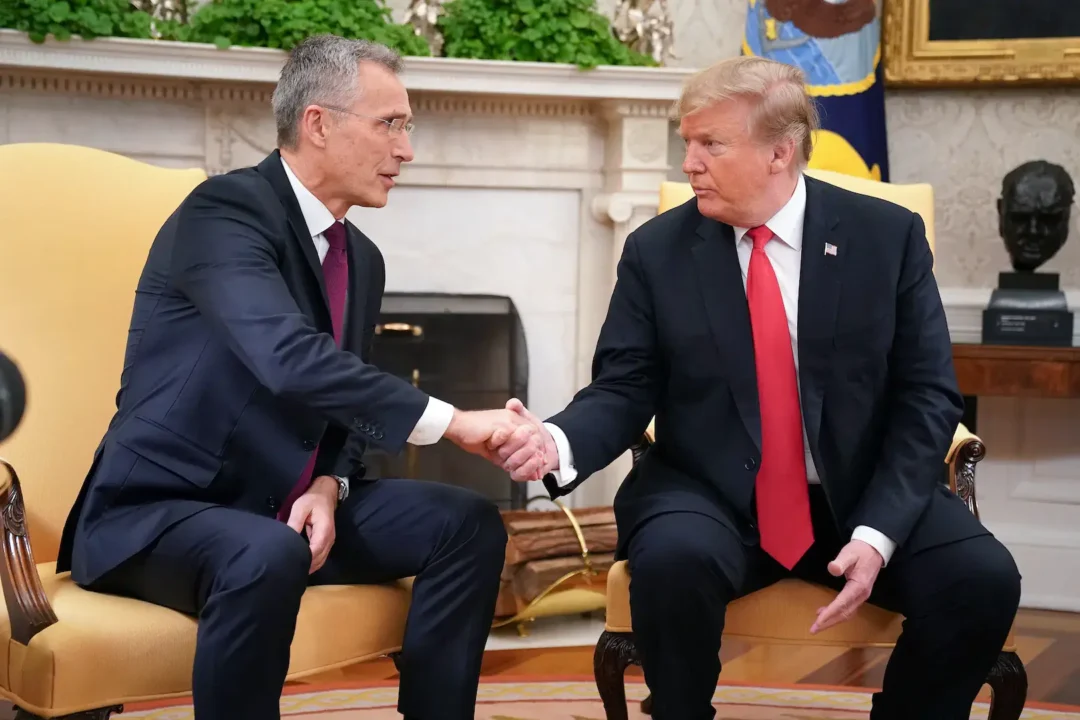Former NATO chief Jens Stoltenberg urges Europe to boost defense spending and strengthen transatlantic ties as Trump returns to power.
Former NATO Secretary General Jens Stoltenberg has urged European leaders to step up their defense spending commitments to keep the transatlantic alliance strong in the face of threats, and to support President-elect Donald Trump’s efforts to end the war in Ukraine.
Stoltenberg, who led NATO from 2014 to 2024, wrote in a Nov. 9 op-ed in The Financial Times that European nations have a crucial role to play in maintaining the integrity of the transatlantic defense pact, particularly in light of Trump’s renewed calls for burden-sharing within the alliance.
“Trump felt that the U.S. was getting a bad deal. He believed allies weren’t pulling their weight and initially viewed the alliance as a burden rather than an asset,” Stoltenberg wrote, adding that Trump had a point. “Europe had indeed allowed its forces to atrophy, and several nations had become dangerously reliant on Russian gas. These oversights would later cost Europeans dearly.”
Reflecting on NATO’s evolution during Trump’s first presidency, Stoltenberg noted that the working relationship among NATO allies was “good and reliable” under the 45th U.S. president, despite initial tensions. He added that the alliance emerged stronger, with increased defense spending and enhanced capabilities.
However, even though the Europeans have become better NATO allies, Stoltenberg warned that the current security environment demands even greater efforts by European nations. In light of security challenges including Russia’s invasion of Ukraine and rising strategic competition with China, the baseline for what the alliance’s European members must do has shifted.
Calling NATO allies’ commitment to spend 2 percent of gross domestic product (GDP) on defense spending a “floor, not a ceiling,” Stoltenberg said European leaders must step up their efforts, shoulder more responsibility, and invest more in defense.
“If Europe lives up to its part of the bargain, I am confident the new U.S. administration will meet theirs,” he wrote, noting that Trump advocated a policy of strength while in office, and that it was he who decided to deliver lethal weapons to Ukraine, including the anti-tank Javelins that proved instrumental when Russia invaded Ukraine.
Stoltenberg called on NATO’s European allies to “prove their worth” by helping the Trump administration in its strategic focus on the Indo-Pacific, for instance, by offering specific capabilities that the United States might need in that theater.
“That way, we can remind the incoming administration that, far from being a burden, the transatlantic relationship is a key strategic asset in this era of great-power competition,” he wrote. “Trump’s return challenges us to step up and prove that we are true partners rather than free riders.”
The former NATO chief also said that European nations should be prepared to back Trump’s efforts to end the war in Ukraine, “working with Trump to bring about a negotiated settlement that is acceptable to Ukraine and does not reward aggression.”
Trump has said he would bring a quick end to the war if elected. While he has not disclosed a detailed plan—saying that revealing it would undermine its effectiveness—he has said he would leverage his established relationships with both Russian President Vladimir Putin and Ukrainian President Volodymyr Zelenskyy to encourage the two warring leaders into a settlement.
Both Trump and his running mate, Vice President-elect JD Vance, have called on NATO allies to carry a greater share of the defense burden.
By the end of 2023, 10 of 31 NATO members had reached the 2 percent of GDP defense spending goal, although projections suggest that number could rise to 23 out of 32 in 2024, following Sweden’s accession.
When Trump assumed office in 2016, five NATO members were meeting the 2 percent minimum; that figure had grown to nine by the time he left the White House.

